Building a brand for seedless lemons
In recent years, Ben Luc Agricultural Service Cooperative (Luong Hoa Commune, Ben Luc District) has applied clean seedless lemon production. Thanks to that, the cooperative's products have gradually had stable output, affirming its brand in the market.
Director of Ben Luc Agricultural Service Cooperative - Tran Duy Thuan strives to build the Ben Luc seedless lemon brand
In order for the cooperative's products to gain the trust of domestic and foreign customers, we must mention the dedication of the Director of Ben Luc Agricultural Service Cooperative - Tran Duy Thuan. He is the one who changed the mindset and awareness of the cooperative members in lemon cultivation from traditional to clean cultivation standards, meeting export requirements.
“Initially, the cooperative had only 7 members, cultivating 50 hectares of seedless lemons. Up to now, the cooperative's cultivation area has continuously increased. The cooperative is linking consumption with Thanh Hoa Agricultural Cooperative (Ben Luc district), Thuan Binh Agricultural Production and Service Cooperative (Thanh Hoa district), 20 associated member households in Ben Luc district, aiming to link production on an area of 300-400 hectares to proactively produce, link output with businesses, create output as well as sustainable income for lemon growers. The cooperative's lemon output supplied to the market is estimated at about 7,200 tons/year, of which, most meet the fresh export standards of purchasing businesses" - Mr. Thuan shared.
To produce safe products that meet the requirements of domestic and foreign markets, the cooperative has applied good, environmentally friendly farming standards to the farming process. Compared to the old method, the new seedless lemon farming model yields lower yields but saves over 10% on production costs.
Not only that, Mr. Thuan also signed a contract to purchase all the cooperative members with the purchase price for 6 months of the dry season being 20,000 VND/kg and for 6 months of the rainy season being 15,000 VND/kg. Currently, the cooperative's seedless lemon products are present in many major markets in the world such as Europe, the Middle East, etc.
In the coming time, the provincial Department of Agriculture will focus on coordinating with relevant departments and branches to promote propaganda work so that farmers clearly understand that in the integration period, they must be farmers of the 4.0 era, daring to think, daring to do, daring to invest, applying scientific and technological advances, changing production methods, accessing the market to optimize the production process, improving the quality and value of agricultural products; at the same time, focusing on innovating thinking and agricultural growth models in the direction of abandoning the agricultural processing model to production according to orders, promoting the development of agriculture applying high technology and advanced, modern agricultural processing technology in production". Director of Department of Agriculture and Rural Development - Nguyen Thanh Truyen |
Find stable output for dragon fruit
Visiting the dragon fruit garden of Mr. Truong Minh Trung's family (An Luc Long commune, Chau Thanh district) in the post-harvest processing stage, we could not help but be surprised. On the raised-bed land, rows of dragon fruit were straight and lush.
Mr. Truong Minh Trung (An Luc Long commune, Chau Thanh district) applies science and technology to production and finds stable output for dragon fruit.
Mr. Trung said that in 2005, his family converted 1 hectare of ineffective rice production land to grow dragon fruit. At that time, due to limited experience, the productivity and quality of dragon fruit were not high, but the profit was still many times higher than that of rice cultivation. In 2010, the movement of growing dragon fruit according to VietGAP, GlobalGAP processes and applying high technology in the locality became increasingly popular. With the accumulated capital, he boldly invested in lowering the voltage of electricity to light up the dragon fruit to flower out of season and operate a smart irrigation system. From 1 hectare of dragon fruit produced according to the original GlobalGAP standards, up to now, Mr. Trung has over 3 hectares of dragon fruit that meet GlobalGAP standards and are guaranteed for export at stable prices. It is estimated that each year, Mr. Trung has a profit of over 1 billion VND.
In particular, in 2011, Mr. Trung also established the Thanh Long Hoi Cooperative. Initially, the Cooperative had only 26 members, but now it has more than 60 members with a total dragon fruit cultivation area of over 50 hectares. Mr. Trung added that when the Cooperative was first established, many households in the area also competed to grow dragon fruit and after a short time, the dragon fruit growing area in An Luc Long commune increased rapidly, so the output also increased. Therefore, farmers were constantly forced to lower prices, so they could not help but worry about the future of this fruit. Since the Cooperative started operating, thanks to the standard production process and stable source of raw materials, the Cooperative has signed purchasing contracts with major partners, helping Cooperative members feel secure in production.
Determined to contribute to the homeland
Mr. Duong Hoai An (Kien Binh Commune, Tan Thanh District) graduated from the Plant Protection Department of Ho Chi Minh City University of Agriculture and Forestry and has a stable job in a company with a fairly high salary. However, he always wants to return to his hometown to develop the rice industry, bringing people a stable source of income and no longer experiencing the situation of "good harvest, low price" or vice versa.
Mr. Duong Hoai An (3rd from right) is always dedicated and responsible for the rice industry.
Although he had the intention, he was not in a hurry. During his work, he researched and studied many new rice varieties and experimented with planting them to see if they met the local soil conditions and market demands. Among them, he chose purple rice and black sticky rice for experimental planting. After a period of planting, he realized that purple rice had high nutritional value and was very good for consumers' health thanks to its high content of B vitamins, calcium, magnesium, Omega 3-6-9, etc.
At the end of 2017, Mr. An boldly joined Kien Binh Agricultural Service Cooperative with the aim of helping cooperative members find their own way and create products with the brand of their hometown. With his enthusiasm and responsibility, he was honored to be elected as the Director of the Cooperative. When bringing purple rice to Kien Binh land, Mr. An had to make a lot of efforts to propagate and mobilize farmers, because before, they were used to using fertilizers, chemicals and were concerned about productivity; while growing purple rice had to gradually switch from chemical to organic, the productivity (under 4.5 tons/ha) was lower than rice produced in the chemical direction. In particular, at that time, consumers still equated the price between organic and chemical products without paying attention to the quality and nutritional value that organic products brought.
Faced with the above difficulties, Mr. An had to patiently explain and boldly guarantee the profit for farmers in the Winter-Spring crop at 28-30 million VND/ha, and the Summer-Autumn crop at 18-20 million VND/ha. Above all, he proactively sought out customers and built the brand through trade promotion conferences, online sales channels, etc. Thanks to that, the Kien Binh Purple Rice brand is increasingly favored by customers and brings many benefits to cooperative members.
Mr. An shared: “Currently, the cooperative grows nearly 15 hectares of organic purple rice, supplying the market with an average of over 80 tons of rice per year. In addition, the cooperative also grows 23 hectares of organic rice and over 50 hectares of organically produced rice. In the coming time, the cooperative will expand its production scale, cooperate with more farmers and invest in milling and processing factories,... with the hope of bringing many benefits to the people and improving the quality of local agricultural products.”
With dynamism, creativity, and the spirit of daring to think and dare to do, many farmers have quickly adapted to modern agriculture. This is a welcome signal, contributing to the development of agriculture in a modern and sustainable direction./.
Le Ngoc - Bui Tung
Source link


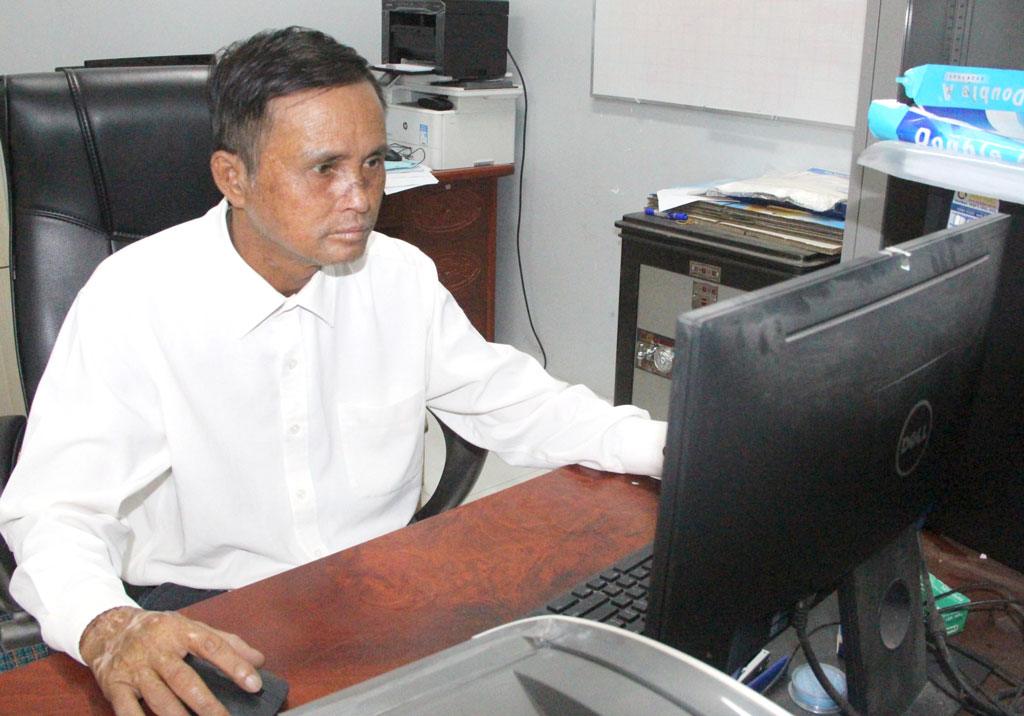
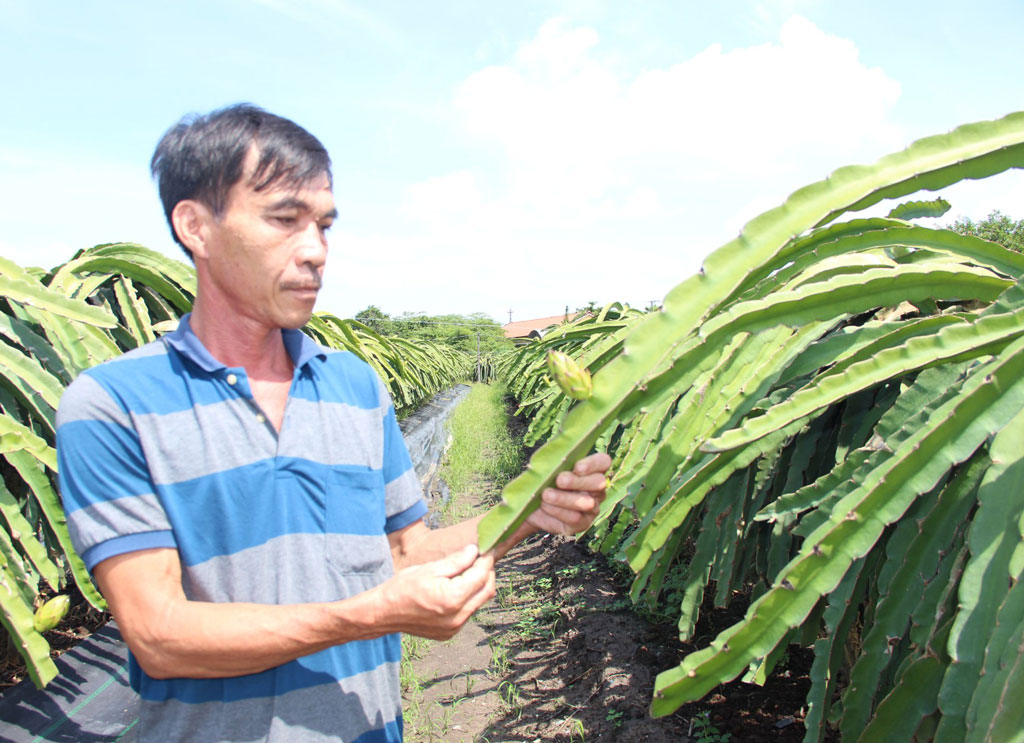
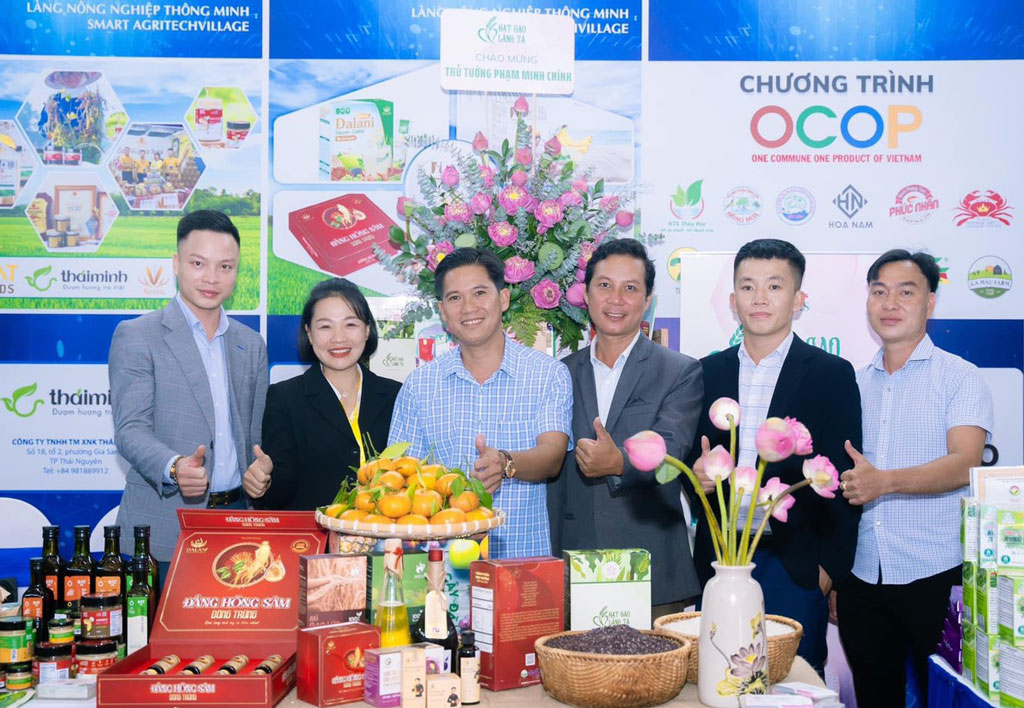






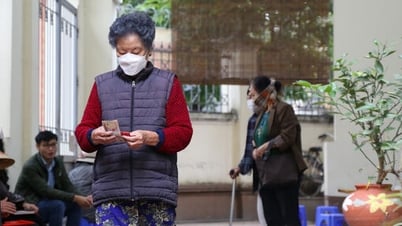
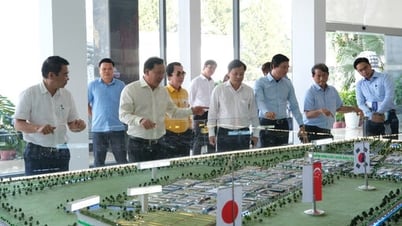



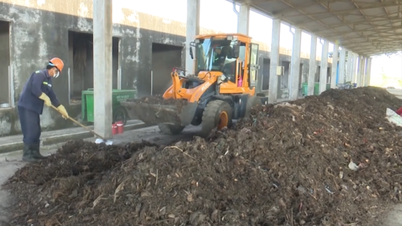




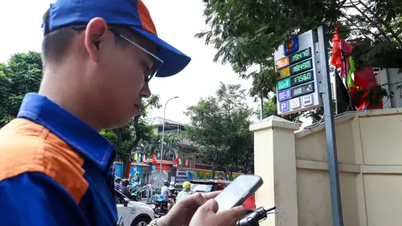
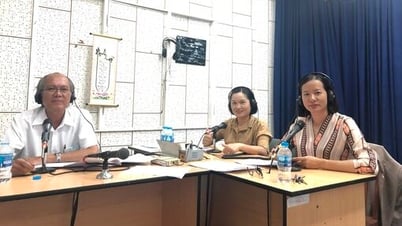

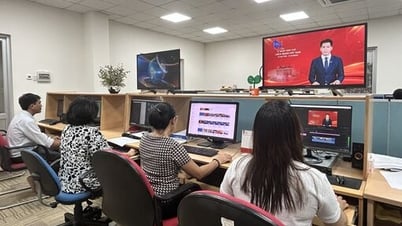
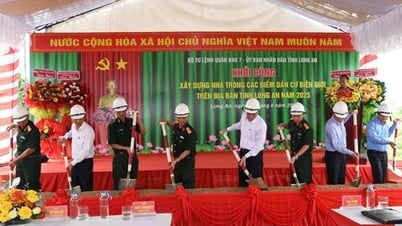
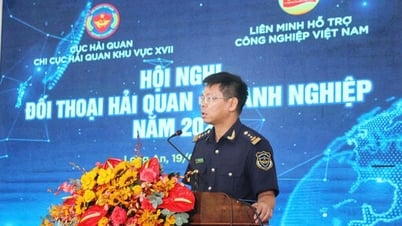




























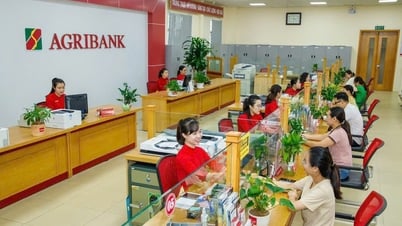
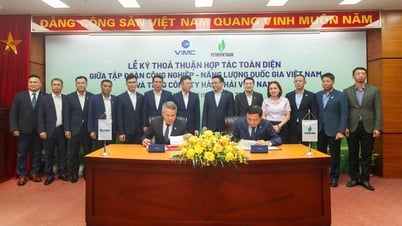



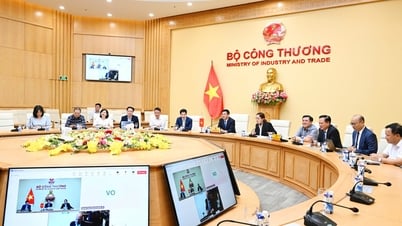


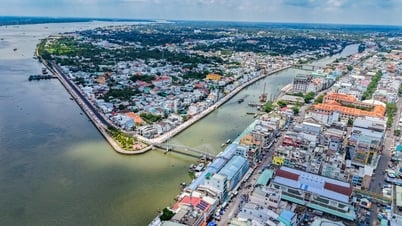





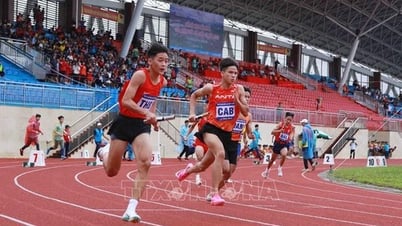


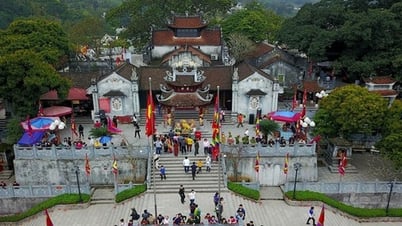
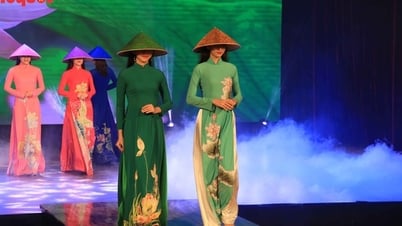
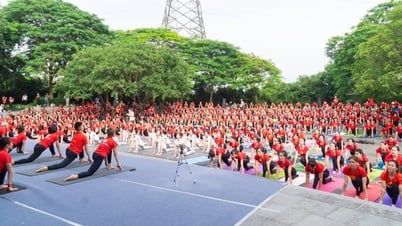
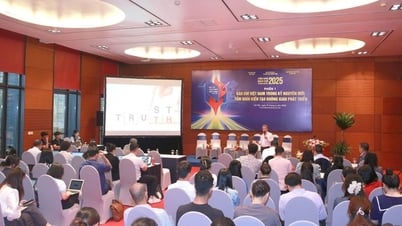
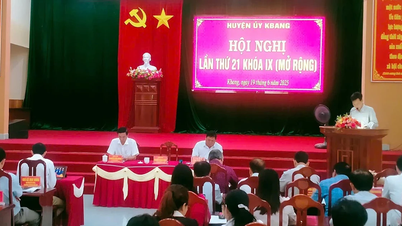

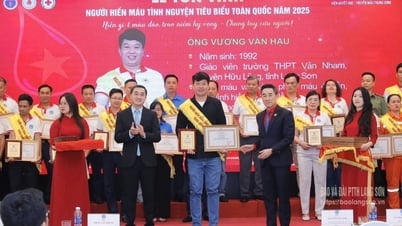

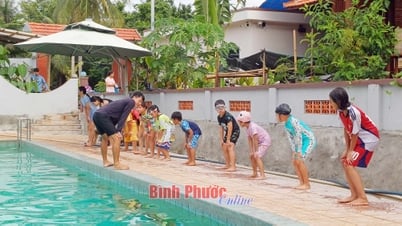

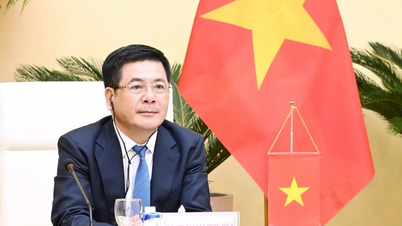

















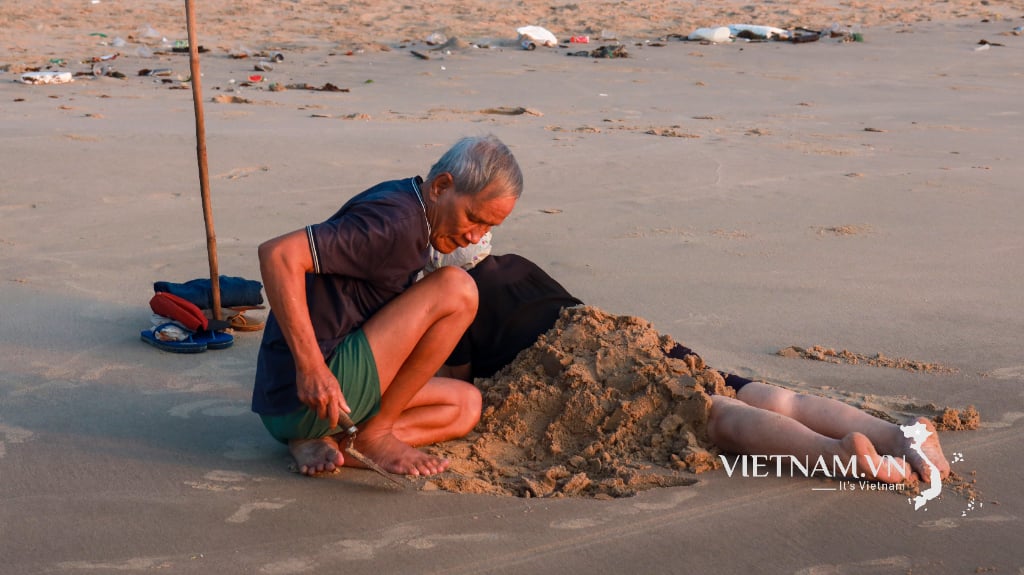
Comment (0)